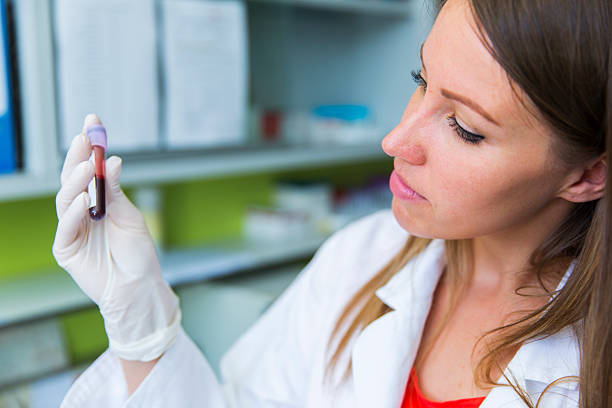Understanding Sperm Donation: A Comprehensive Overview
Sperm donation is a vital aspect of modern reproductive technology, providing opportunities for individuals and couples to achieve their dream of parenthood. This process involves the contribution of sperm from a donor to assist those who are unable to conceive using their own sperm. While it might seem like a straightforward procedure, the journey of sperm donation encompasses various intricate aspects including medical, legal, and ethical considerations. This article aims to offer a detailed and informative exploration of what sperm donation entails, its significance, and its impact on families and donors alike.
The Basics of Sperm Donation
At its core, sperm donation is a process where a man provides sperm that can be used to fertilize an egg, either in a clinical setting through in vitro fertilization (IVF) or via intrauterine insemination (IUI). This sperm can come from anonymous donors or known individuals, and the choice between these options often depends on the recipient's preferences and circumstances. The primary goal is to facilitate conception for those who might face infertility challenges or who require sperm for other reasons such as single women or same-sex couples.
The process begins with the selection of a donor, which is usually done through sperm banks or fertility clinics. Donors undergo rigorous screening processes to ensure that they are healthy and that their sperm meets the necessary quality standards. This screening typically includes a medical history review, physical examinations, and genetic testing to rule out potential hereditary conditions.
The Donor Selection Process
Selecting a sperm donor involves a combination of medical, personal, and psychological evaluations. Potential donors must meet specific criteria, including age limits and health standards. Typically, donors are between the ages of 18 and 39, as this range is associated with optimal sperm quality. Donors are also required to undergo comprehensive health screenings to identify any infectious diseases or genetic disorders that could impact the recipient or future offspring.
In addition to medical evaluations, sperm donors often undergo psychological assessments to ensure they are prepared for the implications of their donation. This aspect is crucial as it helps in understanding the emotional and psychological impact of donating sperm, both on the donor and the recipient. The psychological well-being of donors is essential to ensure a positive experience throughout the donation process.
The Donation Process
Once a donor is selected, the sperm donation process begins. Donors provide sperm samples in a controlled environment at a sperm bank or fertility clinic. The sperm is then processed and analyzed to determine its viability and quality. This processing involves separating sperm from seminal fluid and testing for concentration, motility, and morphology.
After processing, the sperm is frozen and stored in liquid nitrogen at extremely low temperatures. This freezing process, known as cryopreservation, allows the sperm to be preserved for long periods without losing its fertilization potential. The sperm can be thawed and used whenever needed, providing flexibility and convenience for recipients.
Legal and Ethical Considerations
Sperm donation involves significant legal and ethical considerations. The legal aspects typically include agreements regarding the anonymity or disclosure of donor identities and the rights of the donor concerning any future offspring. In many jurisdictions, anonymous sperm donation is standard practice, but some recipients may prefer known donors who are willing to have some level of contact or interaction.
Ethical considerations also play a crucial role in sperm donation. These include issues related to donor consent, the potential for exploitation, and the ethical implications of using donor sperm. It is essential for sperm banks and fertility clinics to operate transparently and ethically, ensuring that all parties involved are well-informed and their rights are respected.
Impact on Recipients and Families
For recipients, sperm donation offers a unique opportunity to build a family. Individuals and couples who face fertility challenges, those in same-sex relationships, or single women who wish to become parents can benefit from this process. The ability to use donor sperm provides a pathway to parenthood that might not be otherwise available.
The emotional journey of recipients can be complex. Many recipients experience a range of emotions, from excitement and hope to anxiety and uncertainty. Fertility clinics often provide counseling and support services to help recipients navigate this emotional landscape and address any concerns they may have about the donor's anonymity or the child's future.
Families formed through sperm donation often face additional considerations, such as how to discuss the child's origins and manage any potential questions about donor identity. Open communication within the family is crucial to addressing these aspects and ensuring a positive and supportive environment for the child.
The Role of Sperm Banks and Fertility Clinics
Sperm banks and fertility clinics play a central role in the sperm donation process. They are responsible for recruiting and screening donors, processing and storing sperm, and providing the necessary services to recipients. These institutions must adhere to strict guidelines and regulations to ensure the safety and quality of their services.
Sperm banks typically have extensive databases of donor profiles, allowing recipients to choose donors based on various criteria, including physical characteristics, educational background, and personal interests. This selection process helps recipients find a donor who aligns with their preferences and values.
Fertility clinics, on the other hand, offer a range of reproductive services, including sperm insemination and fertility treatments. They work closely with recipients to create personalized treatment plans and provide ongoing support throughout the conception process.
Advances in Sperm Donation Technology
Advancements in reproductive technology continue to enhance the sperm donation process. Techniques such as sperm sorting and genetic screening have improved the success rates of fertility treatments and reduced the risk of hereditary conditions. Sperm sorting allows for the selection of sperm with specific traits, such as determining the sex of the baby, although this is less common and subject to ethical debates.
Genetic screening has become a standard part of the sperm donation process, helping to identify potential genetic disorders that could be passed on to offspring. This screening ensures that the sperm used in fertility treatments is as free from genetic abnormalities as possible, improving the likelihood of a healthy pregnancy and baby.
The Future of Sperm Donation
As technology and medical knowledge advance, the future of sperm donation holds exciting possibilities. Innovations in genetic research and reproductive medicine may lead to even more refined screening techniques and improved fertility treatments. Additionally, there is ongoing research into ways to make the sperm donation process more accessible and inclusive for a broader range of individuals and couples.
Ethical considerations will continue to evolve as societal attitudes towards sperm donation change. Issues such as donor anonymity, the rights of donor-conceived individuals, and the regulation of sperm banks will likely remain important topics of discussion and debate.
Conclusion
Sperm donation is a complex and multifaceted process that plays a crucial role in modern reproductive medicine. From the rigorous screening of donors to the ethical and legal considerations involved, each aspect of sperm donation is designed to ensure the best outcomes for recipients and their families. As technology continues to advance, the sperm donation process will likely become even more refined, offering new opportunities and addressing ongoing challenges. Understanding the various facets of sperm donation helps to appreciate its significance and the positive impact it has on the lives of many individuals and families.




